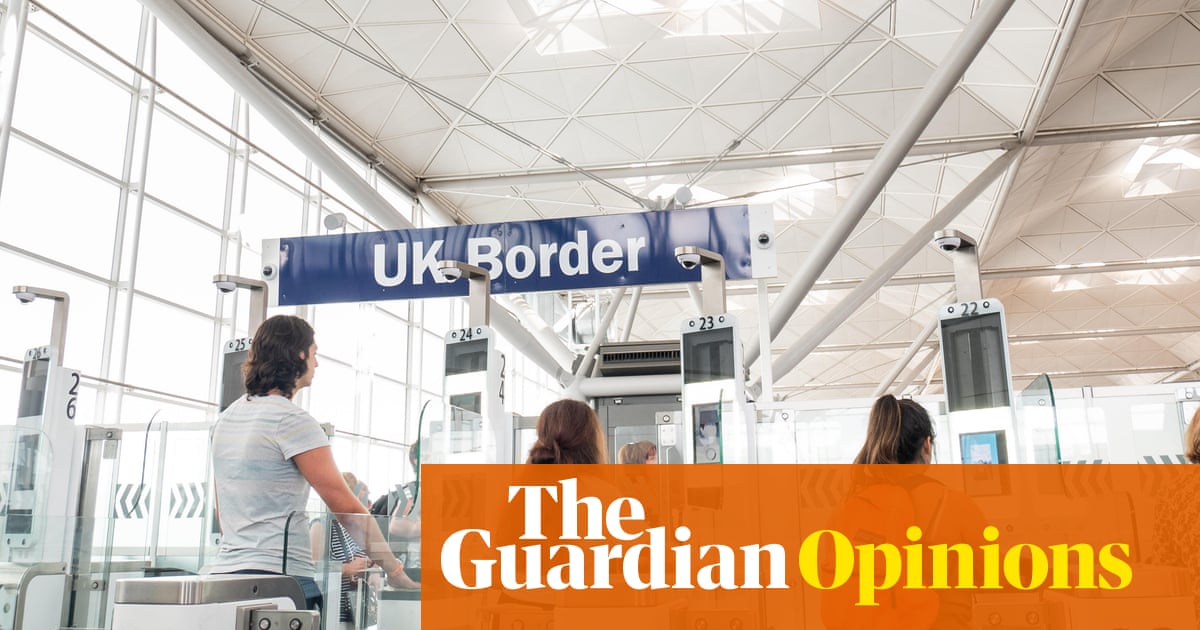Every government needs an immigration policy and the one led by Sir Keir Starmer is no exception. Laws are required to establish the terms under which migration to the UK is allowed, and to deal with the complexities surrounding irregular arrivals. But the decision to publish animmigration white papera week after Reform UK made significant gains in local elections, when it is riding high in national polls, is hard to defend. Rather than defusing public concerns, the prime minister risks playing into the hard right’s hands – andundermining the community cohesionhe says he wants to protect.
Some of the proposed measures are reasonable. Others are not. Visa rules are complicated and ministers have identified real concerns about the way the system works. But the timing and language, particularly the prime minister’s references to an “island of strangers” and forces“pulling our country apart”, were awful choices. The danger is that such rhetoric ends upreinforcing divisions and xenophobia.
Sir Keir’s target is the opposition’s record. He is right that the policies of the Conservatives were a cynical disgrace. Legal migration rose from 224,000 in 2019 to 906,000 in 2023. Voters who were entitled to think they had opted for reduced inward migration, both in the Brexit referendum and by electing a prime minister, Boris Johnson, who vowed to “take back control” of borders, instead got a free-market experiment. While the Tories used their inhumaneRwanda schemeas a distraction, employers ramped up overseas recruitment as skill thresholds were lowered.
In manufacturing, transport and engineering, the subsequent increase in foreign employees is correlated with adecline in the UK workforceand apprenticeships. The failure of this laissez-faire approach to the economy has not been limited to jobs. Living standards have stagnated, with lower rates of growth than in the eurozone and US. The government is right that employers should invest in people here, as well as scouting in other countries. If it is well run, the newLabour Market Evidence Groupcould play a positive role in a more industrially activist government. It is good to signal a looser approach to refugees working, and reasonable to expect migrant workers’ dependants to learn English. Councils should support this.
However, thewhite paper, in both tone and substance, is distinctly illiberal. It uses the language of “fairness”, “integration” and “public confidence”. But its core proposals represent a consolidation of executive power, a curtailment of individual rights and a weakening of judicial independence. These are not reforms – they are regressions.
The pledge to deport more foreign criminals smacks of tabloid politics. Granting counter-terrorism-style powers to the Border Force risks stoking, not easing, fear. Cancelling social care visas on the grounds of “abuse” threatens a sector already on thebrink. Raising salary thresholds for those with dependants penalises lower-paid workers. And while it is right to review student visas, the real issue is the crisis inunderfundingof higher education – not the students themselves.
Sir Keir’s anger about the Tories’ track record is justified. It harms democracy, and helps opportunists likeNigel Farage, when parties tell voters one thing while doing another. But past mistakes do not justify present ones. Migrants have been and will remain a vital part of the UK’s labour force and student bodies. The government and its MPs must highlight these positives clearly and loudly.
